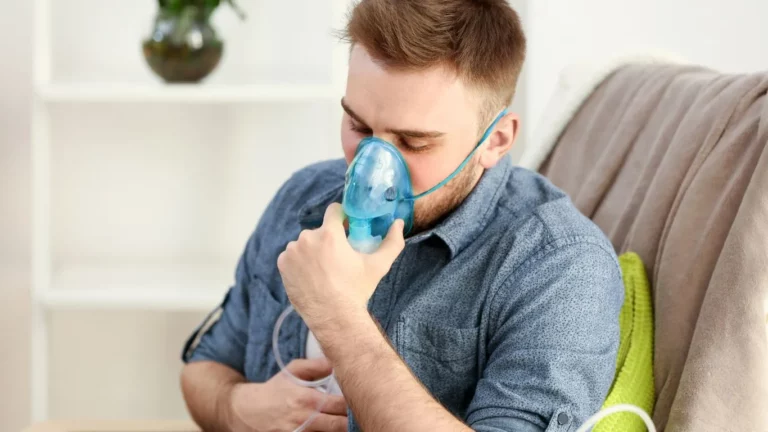How to Calm GERD Flare-Ups Naturally and Effectively
Struggling with a GERD flare-up? Discover practical, real-life tips to calm the burn and find lasting relief for acid reflux and heartburn.
Dealing with GERD flare-ups is no joke. That burning sensation in your chest, the sour taste in your mouth, and the discomfort that just won’t quit? Yeah, we’ve all been there. If you’re looking for ways to calm a GERD flare-up fast and get back to feeling normal, I’ve got your back. Let’s dive into some tried-and-true methods that actually work.

Understanding GERD and Its Triggers
First off, let’s talk about what GERD (gastroesophageal reflux disease) actually is. Basically, it’s when stomach acid decides to head north instead of staying where it belongs. This backflow causes heartburn, regurgitation, and even chest pain.
What triggers it? Well, the usual suspects include spicy foods, fatty meals, caffeine, alcohol, and stress. But sometimes, it feels like just looking at food sets it off. The key to managing GERD flare-ups is recognizing your triggers and making some tweaks to your routine.
Quick Tip:
Keep a food diary for a week. Write down what you eat, when you eat, and how your body reacts. Patterns will pop out, and you’ll know what to avoid.

Immediate Relief Tips for GERD Flare-Ups
When you’re in the middle of a flare-up, the goal is simple: stop the burn ASAP. Here’s how:
1. Sip on Warm Water or Herbal Tea
Warm (not hot!) water can help dilute stomach acid and soothe your esophagus. Chamomile or ginger tea works wonders too. They’re gentle on your tummy and can help ease inflammation.
2. Chew Sugar-Free Gum
Sounds weird, right? But chewing gum stimulates saliva production, which can neutralize acid. Just avoid mint flavors—they can actually make things worse.
3. Elevate Your Upper Body
Prop yourself up with pillows or recline in a chair. Gravity helps keep acid down where it belongs. Lying flat is a no-go when you’re dealing with reflux.
4. Try an Over-the-Counter Antacid
If all else fails, a quick dose of antacids like Tums or Rolaids can give temporary relief. Just don’t rely on them long-term without consulting a doctor.

Lifestyle Changes for Long-Term GERD Relief
Now that we’ve tackled the immediate issue, let’s talk prevention. Managing GERD isn’t just about putting out fires—it’s about stopping them before they start. Here are some lifestyle changes to consider:
1. Eat Smaller Meals
Big meals can overload your stomach, increasing the chance of acid sneaking up. Stick to smaller, more frequent meals instead.
2. Watch Your Timing
Avoid eating within two to three hours of bedtime. Nighttime reflux is the worst, and giving your body time to digest can make a huge difference.
3. Choose GERD-Friendly Foods
Think oatmeal, bananas, melons, lean proteins, and green veggies. These are low-acid, easy to digest, and gentle on your stomach.
4. Ditch the Tight Clothes
Anything that squeezes your abdomen (hello, skinny jeans!) can push acid upward. Opt for looser, more comfortable clothing.

Natural Remedies for GERD Flare-Ups
If you’re into natural solutions, there are plenty of remedies that can help soothe GERD symptoms. Here are a few favorites:
1. Aloe Vera Juice
Not just for sunburns! Aloe vera juice can help cool down your esophagus and reduce inflammation. Look for a food-grade version without added sugar.
2. Apple Cider Vinegar
Okay, this one’s controversial. Some people swear by it, saying a teaspoon diluted in water before meals helps balance stomach acid. Others find it makes things worse. Start small and see how your body reacts.
3. Baking Soda Solution
A pinch of baking soda in water can neutralize acid quickly. It’s not a long-term fix, but it’s great in a pinch.
4. Slippery Elm
This herb forms a protective coating in your throat and stomach, easing discomfort. Look for it in lozenge or powder form.
When to See a Doctor
GERD is manageable for most people, but there are times when you need professional help. If you’re experiencing severe symptoms, like persistent chest pain, difficulty swallowing, or unexplained weight loss, don’t wait—see your doctor ASAP. Long-term GERD can lead to complications like esophageal damage, so it’s better to be safe than sorry.
Appendices
References
- American Gastroenterological Association (2023). Managing GERD: A Guide for Patients. Read Article
- Smith, R., & Taylor, J. (2022). Natural Remedies for Acid Reflux. Journal of Digestive Health, 15(3), 45-60. Read Article
- Mayo Clinic (2024). GERD: Symptoms and Treatments. Read Article
FAQs
- What foods should I avoid during a GERD flare-up? Spicy, fatty, and acidic foods like tomatoes, chocolate, coffee, and alcohol are common triggers.
- Can stress cause GERD symptoms? Yes! Stress can worsen GERD by affecting digestion and increasing stomach acid production.
- How long does a GERD flare-up last? It varies, but mild episodes usually resolve within a few hours. Severe symptoms may last longer.
- Is it safe to exercise during a flare-up? Gentle activities like walking can help, but avoid intense workouts that involve bending or straining.
- Can GERD go away on its own? Without management, GERD is unlikely to resolve completely. Lifestyle changes and medical treatment are often needed.
- Are there medications for GERD? Yes, options include antacids, H2 blockers, and proton pump inhibitors (PPIs).
- Does drinking water help GERD? Drinking water can temporarily dilute stomach acid and ease symptoms.
- Can smoking worsen GERD? Absolutely. Smoking relaxes the lower esophageal sphincter, allowing acid to flow upward.
- Are probiotics good for GERD? Probiotics may improve gut health and digestion, potentially easing GERD symptoms.
- Can losing weight help with GERD? Yes, especially if you’re overweight. Even losing a small amount of weight can reduce pressure on your stomach.
Disclaimer: This article is for informational purposes only and does not substitute professional medical advice. Always consult a healthcare provider for personalized recommendations.

Camellia Wulansari is a dedicated Medical Assistant at a local clinic and a passionate health writer at Healthusias.com. With years of hands-on experience in patient care and a deep interest in preventive medicine, she bridges the gap between clinical knowledge and accessible health information. Camellia specializes in writing about digestive health, chronic conditions like GERD and hypertension, respiratory issues, and autoimmune diseases, aiming to empower readers with practical, easy-to-understand insights. When she’s not assisting patients or writing, you’ll find her enjoying quiet mornings with coffee and a medical journal in hand—or jamming to her favorite metal band, Lamb of God.







